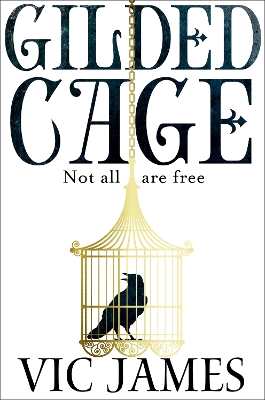Reviewed by Terri M. LeBlanc on
At the end of the Gilded Cage left me with too many questions.
What EXACTLY can the Equals do? Is Skill magic? Where does the power come from? Why do some people have Skill and others don’t? Because I got the distinct feeling that perhaps Skill can be transferred and/or manipulated by Skilled folks who have stronger powers than another.
What is the political game at foot here? Instead of love triangle, there is a political game triangle (maybe even a different shape happening) and it is confusing! Silyen, Bouda, Silyen’s father and his cronies, the Equals trying to bring justice to the Unequals/Slaves/Commoners (what were they called again?!)
What is the point to having so many points of view in such a short book?
Here’s the list: Leah (who only shows up once), Abi, Luke, Silyen, Gavar, Euterpe (who only shows up once), Bouda.
The multiple points of view muddled the story, created an incomplete picture. As a reader, I felt detached from the story. I spent most of my time struggling to get to know the characters and understand their motives, as well as figuring out the world and its rules. In the end I was angry at the rushed ending and confused about how the world worked.
Unfortunately, Gilded Cage is a mess. Told from way to many points of view, you never get a complete painting of the world, its political structure, its magical rules or what game is being played. There are two many players for a three hundred page young adult novel. This felt like a Song of Fire and Ice (aka The Game of Thrones) for kids, but less masterfully composed.
This review was originally posted on Second Run Reviews
Reading updates
- Started reading
- 25 March, 2017: Finished reading
- 25 March, 2017: Reviewed
